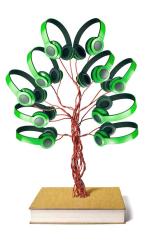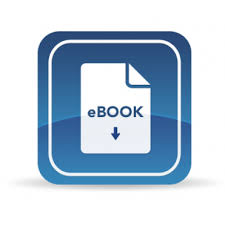 Shelfie (formerly BitLit) is a free mobile application that connects readers to their books. The company is considered among the most doggedly successful of the publishing-sector startups, now partnering with more than 1,200 publishers. Shelfie currently boasts more than 450,000 titles and 24,000 audiobook titles available through the app.
Shelfie (formerly BitLit) is a free mobile application that connects readers to their books. The company is considered among the most doggedly successful of the publishing-sector startups, now partnering with more than 1,200 publishers. Shelfie currently boasts more than 450,000 titles and 24,000 audiobook titles available through the app.
The reason the app is called Shelfie is that it allows readers to digitize their print library by taking a photo of a bookshelf (a “shelfie”) and upload it to the system. Readers then can identify a list of books available free of charge or at a discount, and are able to download an ebook or audiobook simply by snapping a photo of their book’s copyright page marked with a bookplate or their handwritten name.
Source: Canada’s Shelfie Partners with Germany’s De Gruyter in Ebook Bundling



 It’s hard to tell whether Apple is simply trolling Spotify with its
It’s hard to tell whether Apple is simply trolling Spotify with its 
 As the power of the “Big Five” publishers (Hachette, HarperCollins, Macmillan, Penguin Random House, and Simon & Schuster) in the US ebook market wanes, self-publishing authors have overtaken them in terms of unit sales.
As the power of the “Big Five” publishers (Hachette, HarperCollins, Macmillan, Penguin Random House, and Simon & Schuster) in the US ebook market wanes, self-publishing authors have overtaken them in terms of unit sales. Pronoun offered its suite of publishing services to authors at no cost, giving them a 100% royalty on their e-book sales. From the beginning, Brody has positioned Pronoun as an entrepreneurial platform aimed at empowering individual authors with a variety of digital tools and data on e-book sales and the book marketplace.
Pronoun offered its suite of publishing services to authors at no cost, giving them a 100% royalty on their e-book sales. From the beginning, Brody has positioned Pronoun as an entrepreneurial platform aimed at empowering individual authors with a variety of digital tools and data on e-book sales and the book marketplace.